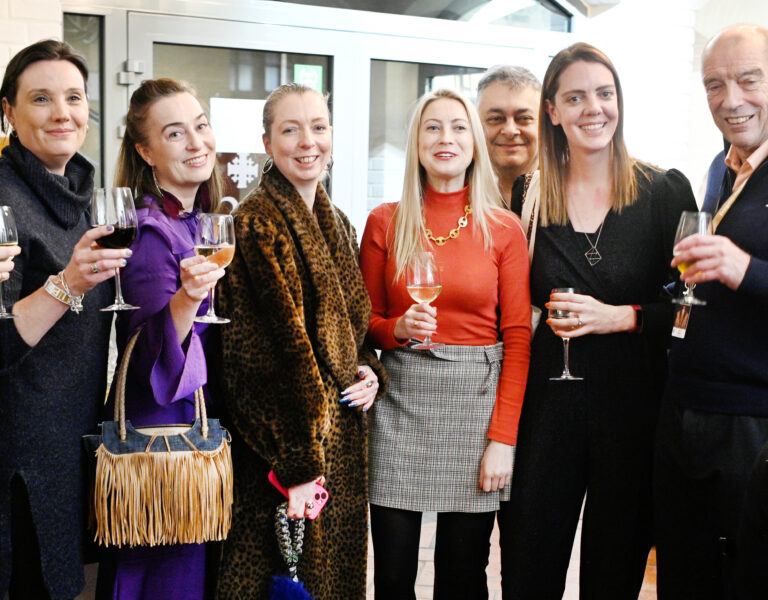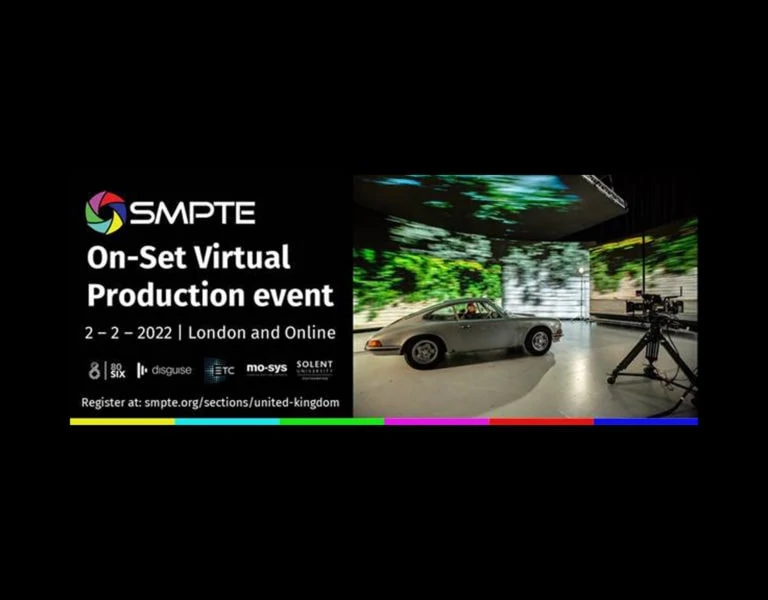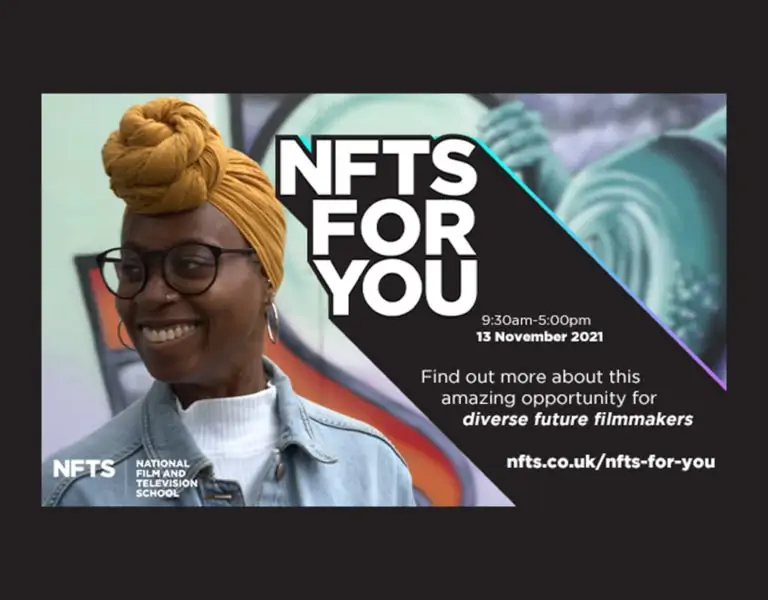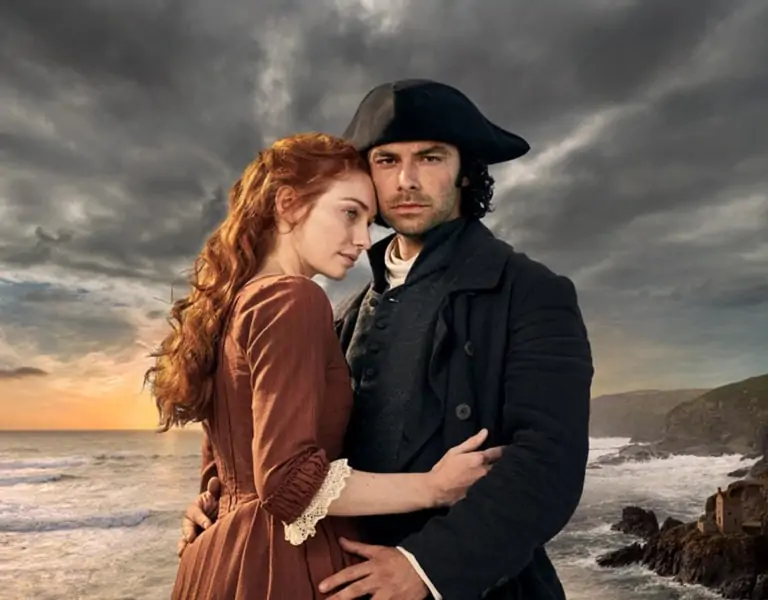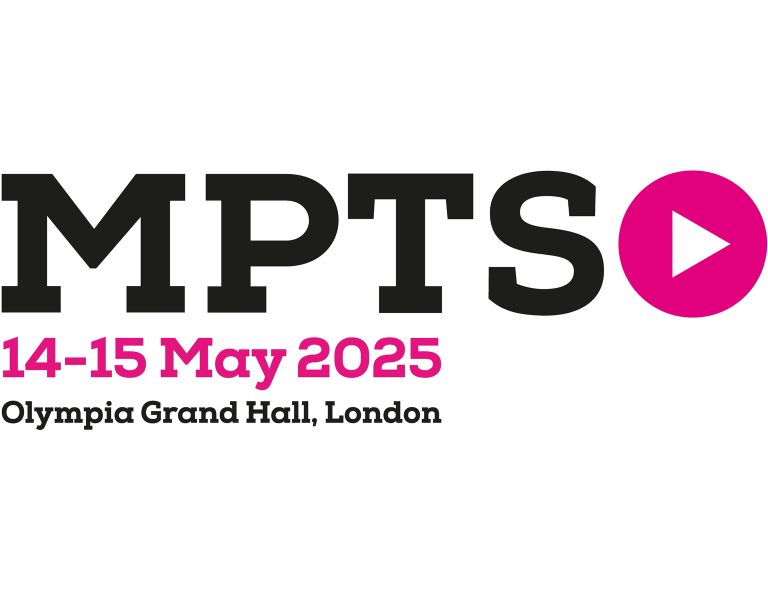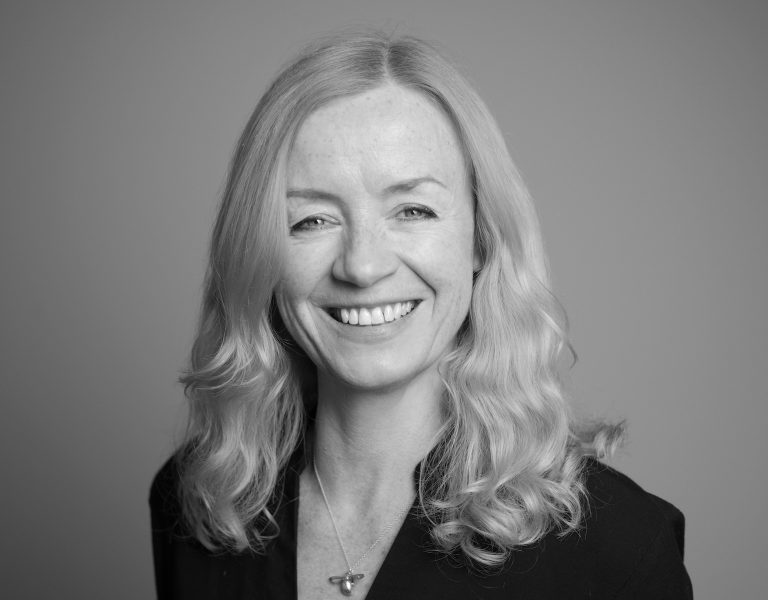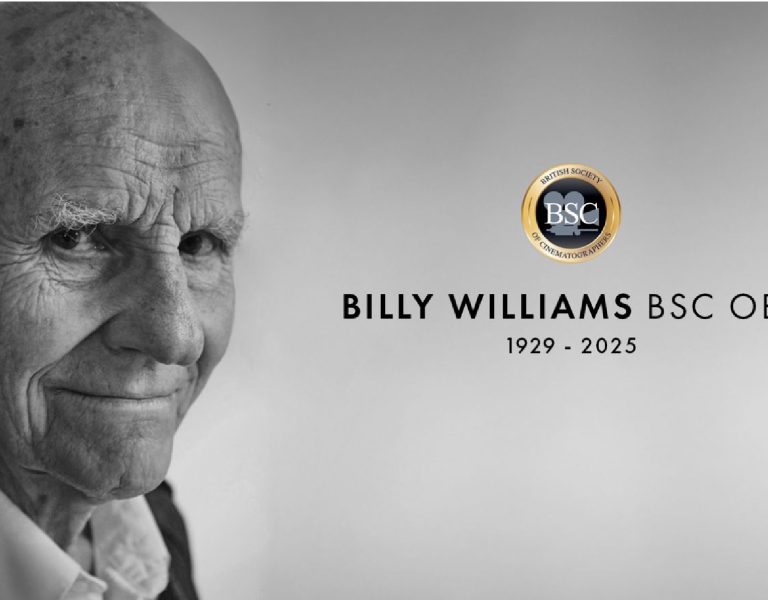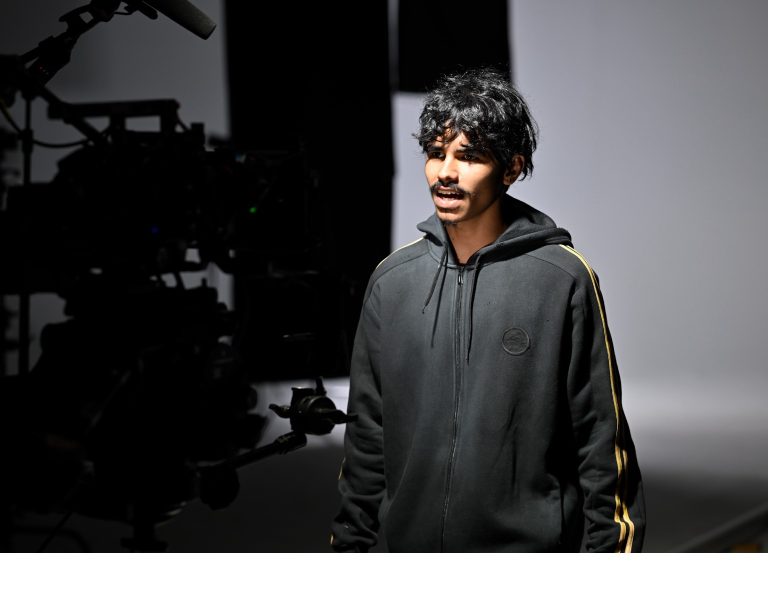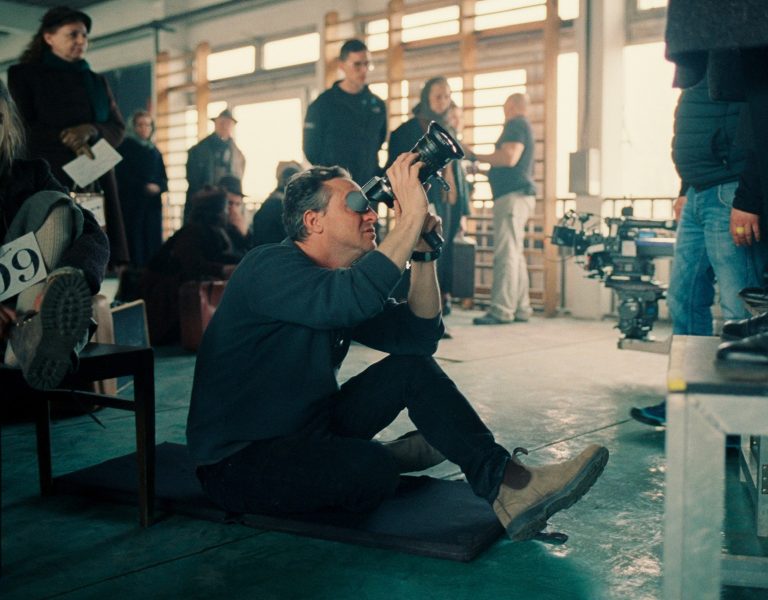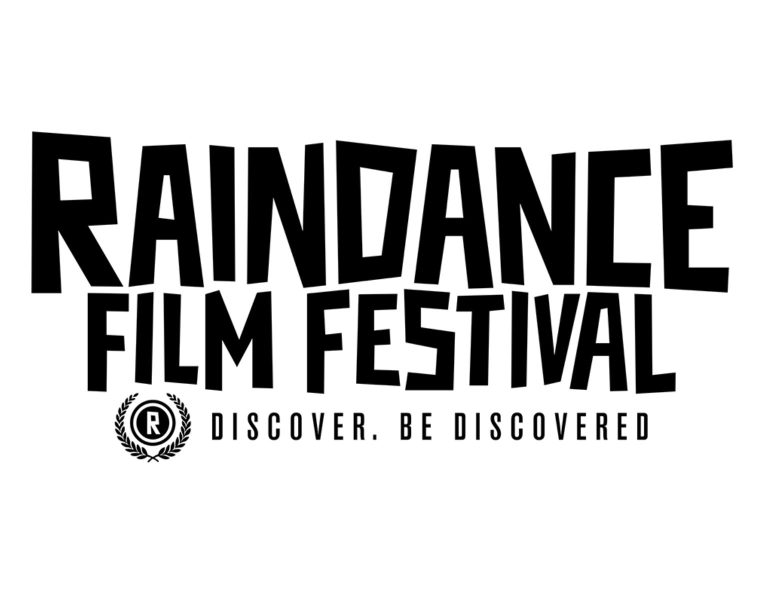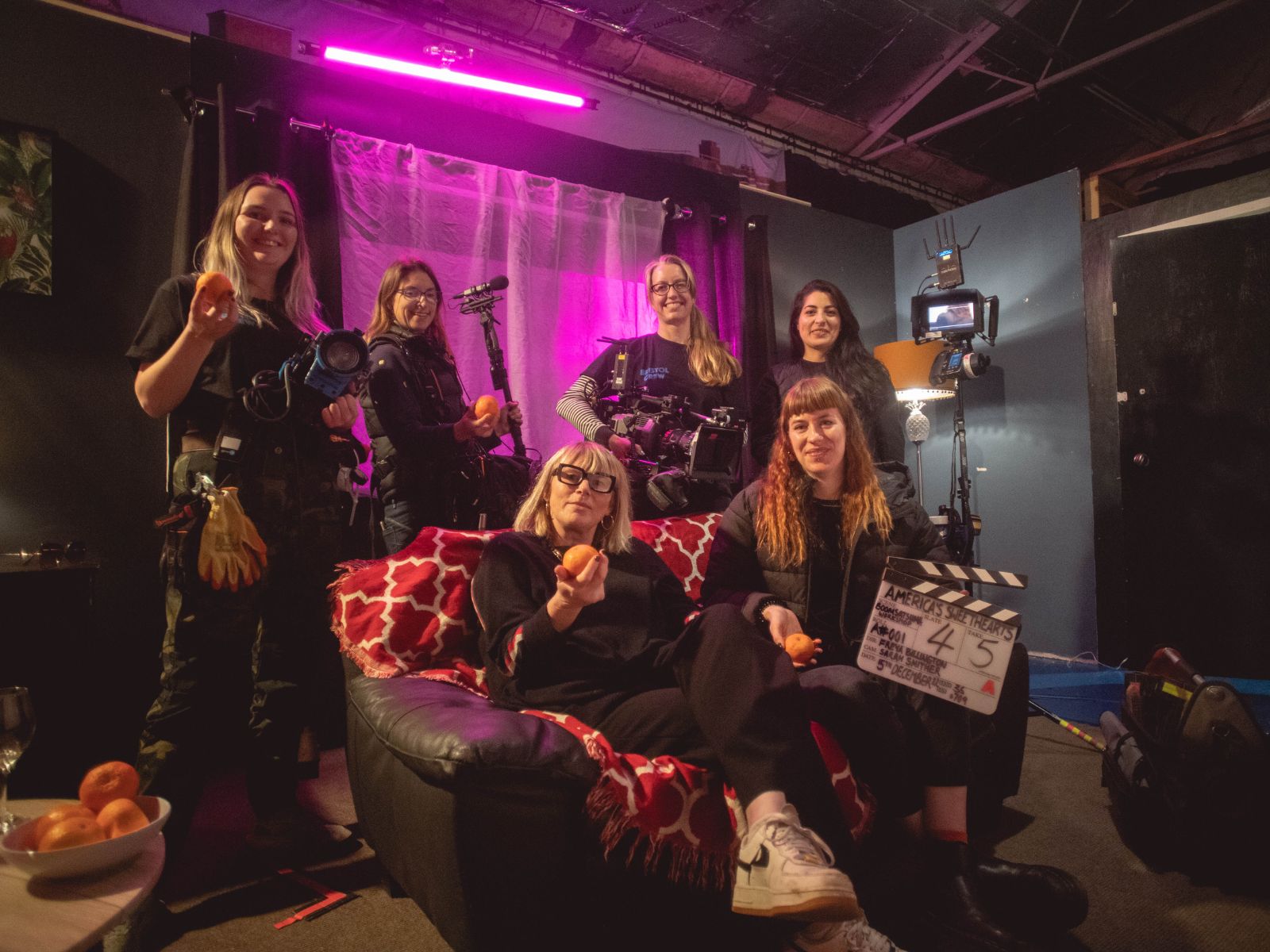
An education centre with a difference in Bristol aimed to demystify on-set action for budding crew with a special cinematography training event.
The session was held on 5 December at boomsatsuma Film School, whose new Production and Post Production degree courses have been making waves in Bristol by actively training students for entry level jobs in the film and TV industry alongside developing their creative identities as filmmakers. Although only open since 2020, boomsatsuma’s students have already worked as runners on the sets of two independent features, a Netflix drama, BBC Factual Programmes, commercials and corporate films, and in post facilities as runners and edit assistant trainees.
The school realised the invaluable experience their students were getting on professional sets could be boosted even more if they were able to ask detailed questions. Often a runner will be on van duty or making tea and there will be no time to ask the camera department about their system or pick up the subtle differences between different crew roles. Who says what to who? Who is responsible for which task and in what order? How do the roles change when working on a high budget feature versus a small indie?
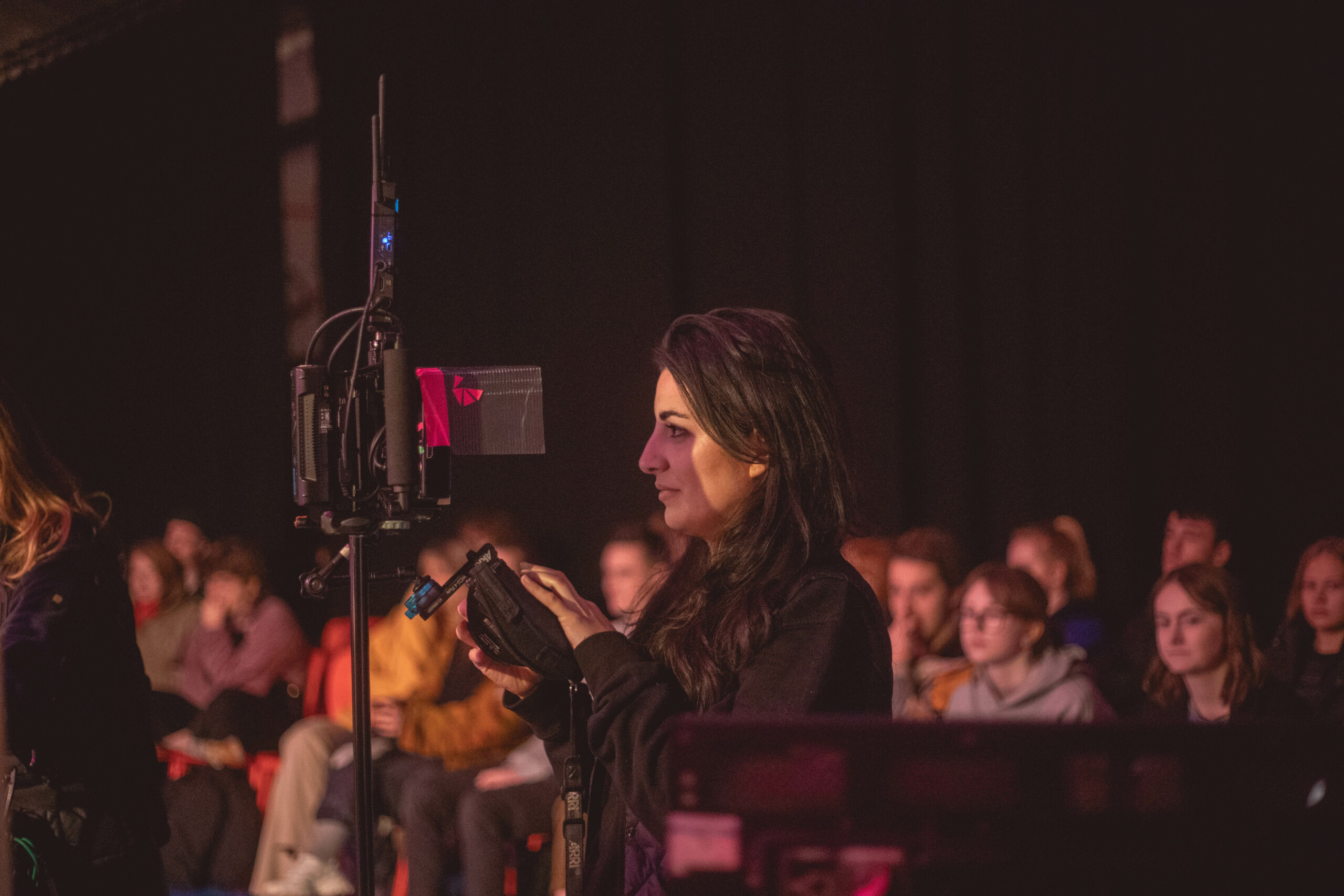
To tackle this, Head of the Film School and independent filmmaker Freya Billington decided to run a drama shoot with a professional crew where the members would explain what they were doing as they did it and students could also interact and ask questions with the proviso no question was too obvious (or too obscure).
”As someone who is also a filmmaker and worked in a variety of roles in the industry prior to teaching, I am a big believer in demystification of process,” she explained. “We announced the event to students as the opportunity to come on to a professional film set and engage directly with an industry crew as they filmed a scene from a drama. We asked everyone to introduce themselves, explained what collaborative discussions had already taken place up to that point, then worked through from rehearsal, blocking through to actually turning over so they could see how decisions are made at what stage.”
Billington called upon local DoP Sarah Smither, who assembled the rest of the crew; 1st AC Camila Carlow, 2nd AC Bethany Fitter, gaffer Rhi Pallister and sound recordist Laura Izzard, along with two actors from the Bristol School of Acting.
“We’ve all been there as young entrants in the industry and we all remember the people that helped us, so it is great to be in that position and help up-and-coming crew,” said Pallister.
Izzard noted: “Even though I’ve worked for many years in the sound department, you still learn a lot from the other departments. Every day is a school day. I never go on a job or even a week without learning something and you rarely get the chance when you’re a runner to ask the sort of questions the students could ask today.”
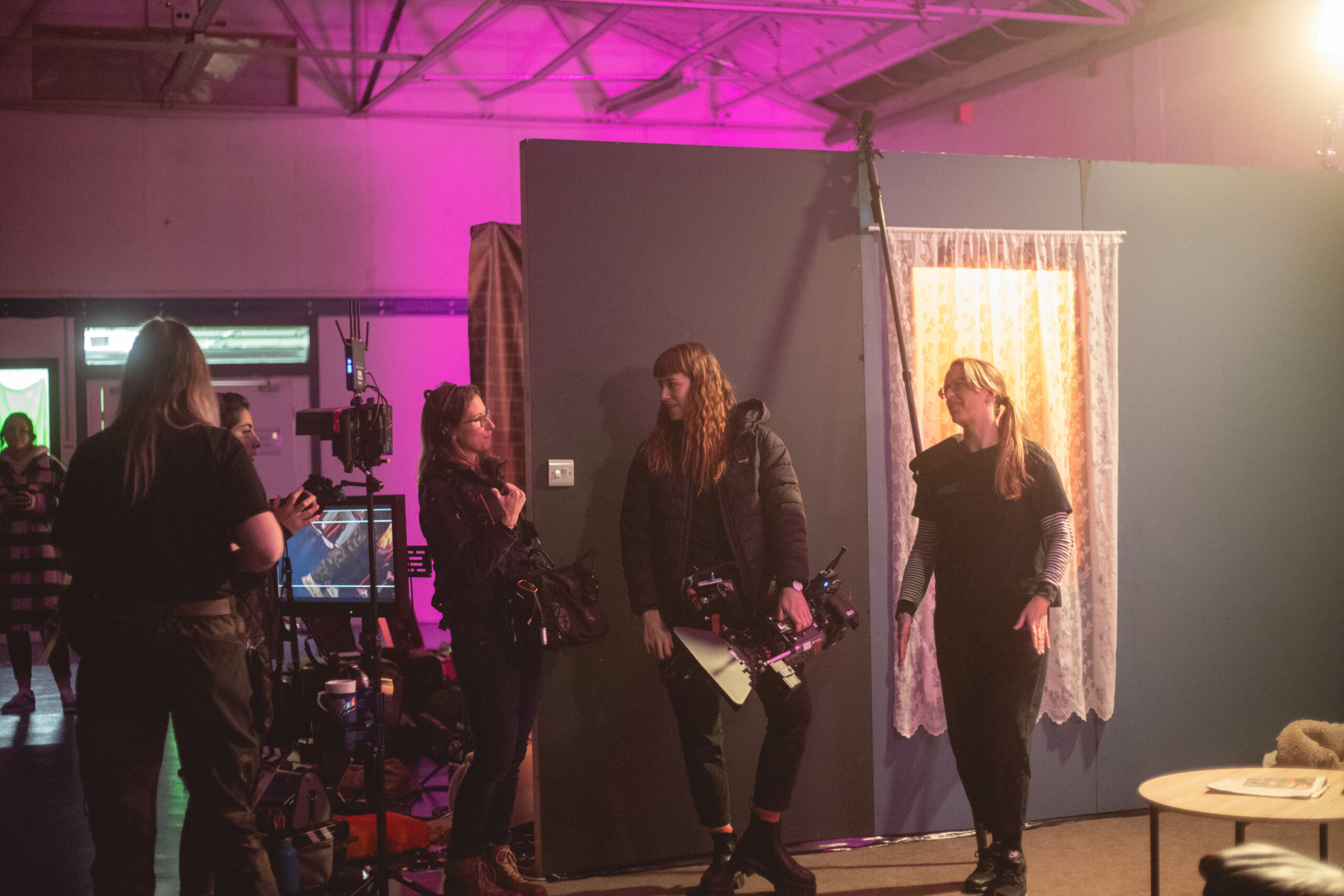
Originally, the boomsatsuma team had not wanted the session to be defined by the gender of those leading it, but rather focus on their work and roles. However, they found that when gaining traction from external partners, there was still the expectation to highlight gender.
Billington added: “At the end of the three-hour session, I then mentioned to the audience that they may or may not have noticed that the crew was entirely female. I am amazed (and intensely irritated) that there is still such a retrogressive framing of the fact women are working, extremely successfully, in this industry. I thought it’d be really interesting to bring together an outstanding professional crew that happened to be women rather than that be the primary factor of what we were talking about or showcasing.”
“I’m really pleased to be able to do this with a fully female crew because they are all amazing and great at their jobs,” said Sarah Smither, DoP. “We wanted to champion that today, but in the technical sense not an “Oh, look at us in a minority” sense, which I think that’s a much more useful thing to do. We didn’t actually talk about the all-women crew aspect at all until the very end, which I think was important.”
One attendee, L4 Production student Grace Thomas, agreed. “I really liked the fact they deliberately didn’t frame this as an ‘all-women thing’ and only said at the end ‘By the way, I don’t know if you’ve noticed…’ I think that it’s much more important to just get on with something rather than only framing it as a specific thing. It was an all-woman thing, but so what? This isn’t about box checking. They were all amazing at their jobs and that was the whole point.”
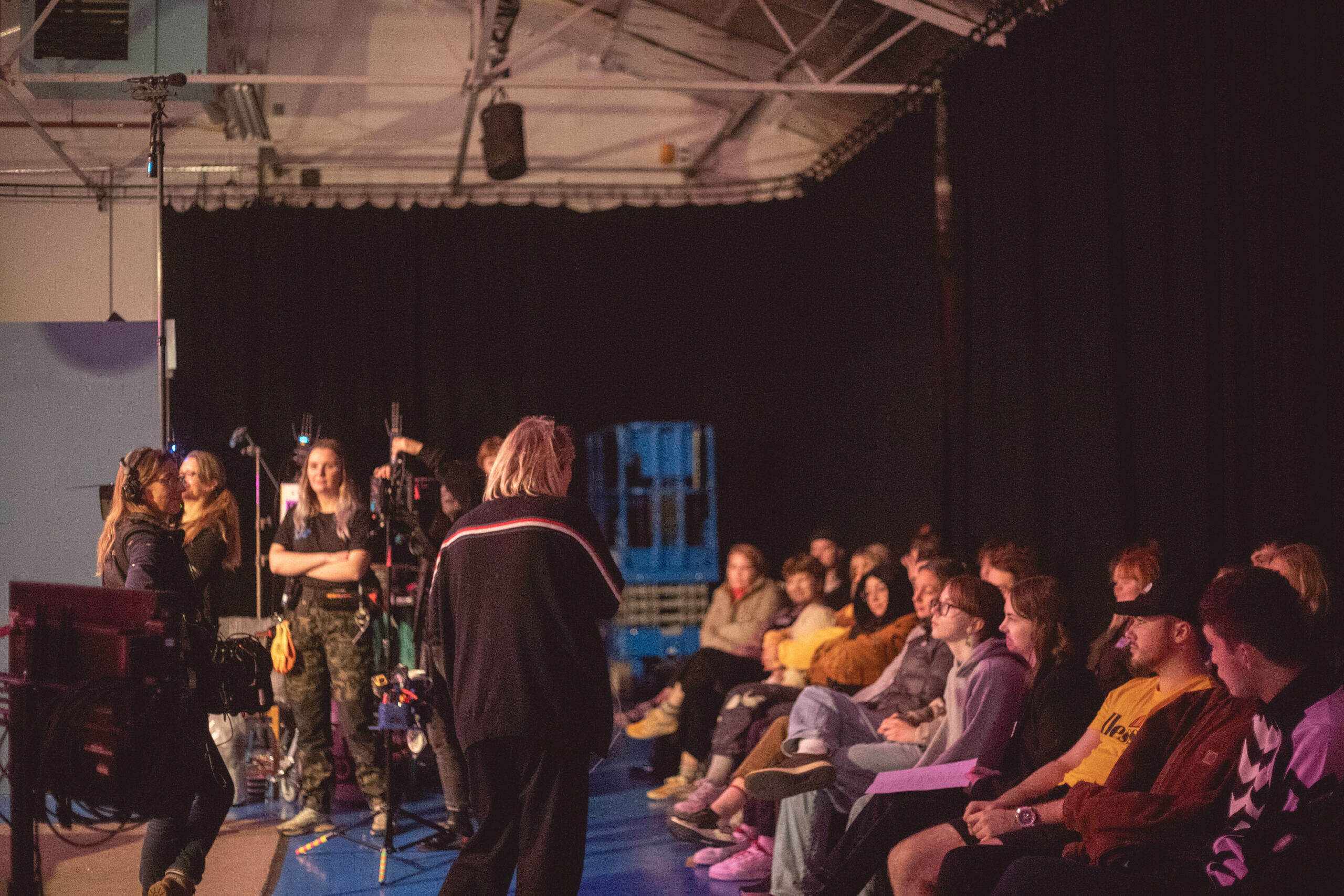
As part of the session, a three-walled set was constructed at boomsatsuma’s new film studios in Brislington, South Bristol, with an audience of 40 students. Any initial concerns from the crew about how they would talk about every decision they made disappeared in their palpable enthusiasm to pass on their experience and talk openly about the jobs they love doing.
“I really wanted the students to see what happens in a real-life environment and actually see how the whole crew relate to each other, how something is constructed, the kind of language people are using and what everyone’s individual jobs are,” explained Sarah Smither. “There aren’t 40+ crew here and a massive lighting team, there’s just the bare bones and this is how we would work on shorts and indie features – sometimes you just have to turn up somewhere and film.
“There are so many knowledge and behaviour gaps at early stage careers. I used to watch people on drama sets to see what was going on and realise I picked up more on the politics and culture rather than the technical stuff.
“Modelling the culture and behaviour on set was really important for the students to see. I realise now, having been Head of Department for a little while, my behaviour dictates how the rest of my team behave. If I create a safe and collaborative environment ,questions can be asked and people can speak up whether they’re having a good or bad time which I think is really important. It’s my responsibility to make sure that they are given all the right tools to do their jobs well and why shouldn’t they enjoy it too?”
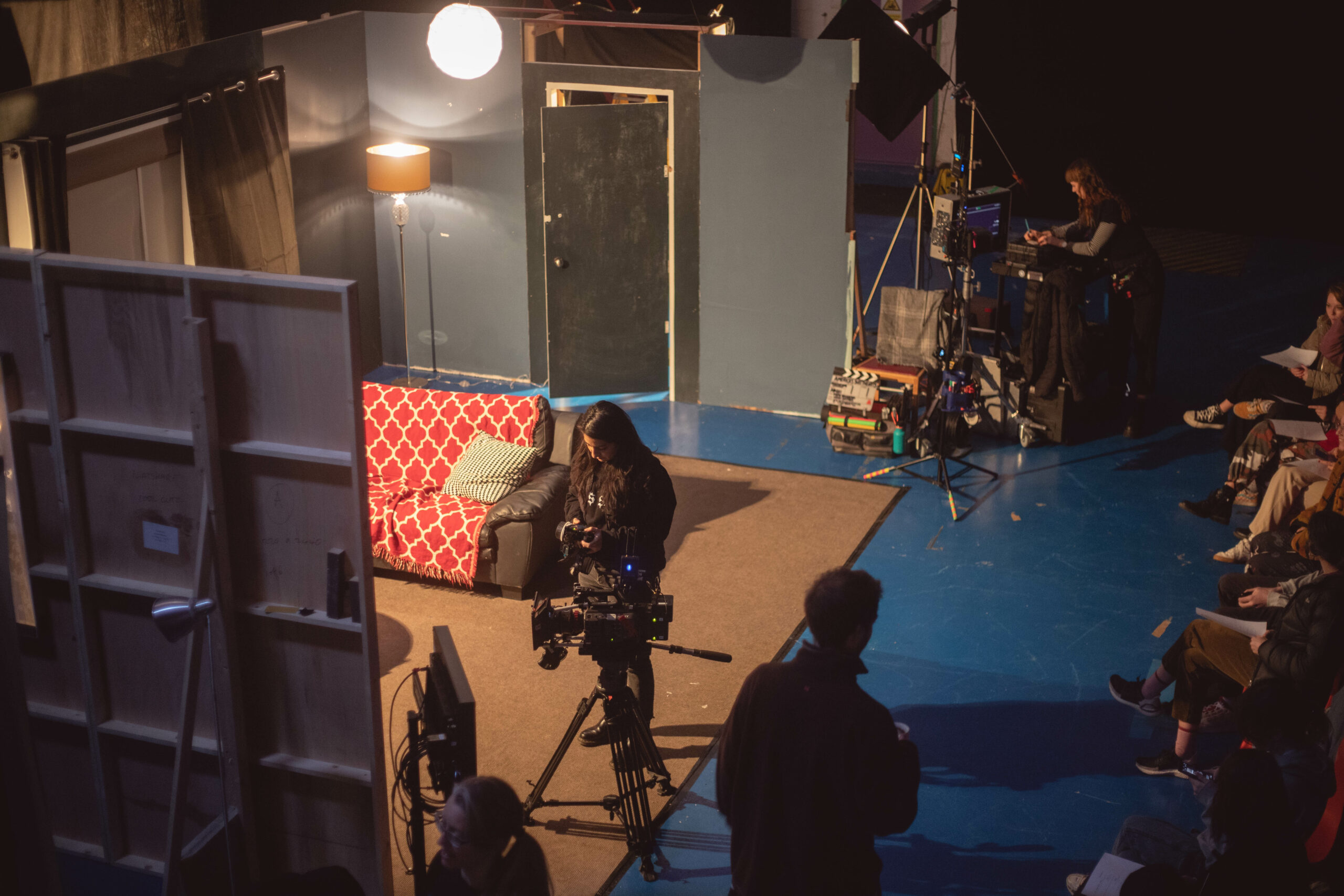
Students said they appreciated seeing how every member of the crew was important to the smooth running of the shoot, and having the freedom to ask questions was invaluable. L5 Production student Dan Wilson-Hollies highlighted the strength of on-set communication. “I saw that communication is key and that you should always clarify something aloud, even if you think everyone else understands it, just to make absolutely sure,” he said. “For example, the DoP asked for a Low Contrast filter, and both the 2nd AC and 1st AC repeated it, saying out loud the name of the filter so that everyone was completely clear it was being changed.”
The event was made possible by the boomsatsuma team including Head of Production David Neal, Studios Manager Phil Zikking, Technical Lead Nirmala Valincuite, and BSA actors Owen Ellis, Sofia Marstin and Head of School Matthew Humphreys. In addition, CineWest, regular providers of Work Experience opportunities for boom students, also supported the event by providing some additional kit.
